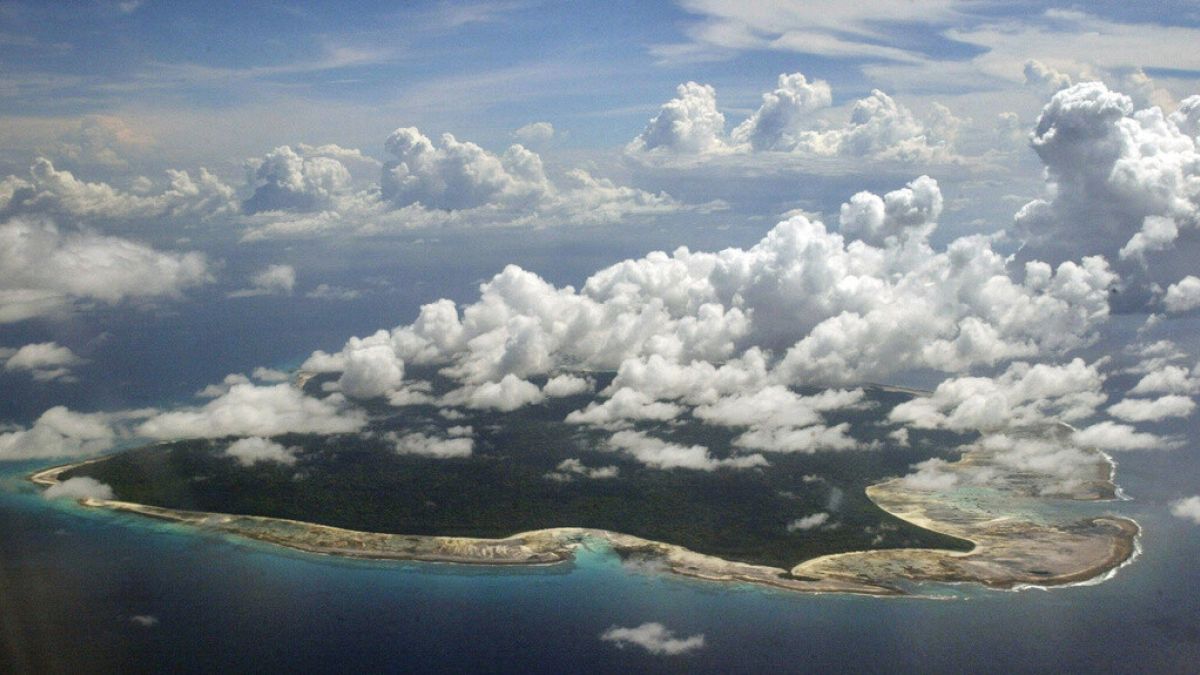By Nivine Sandouka, Regional Director, Brian Reeves, Director of Strategic Relations, Alliance for Middle East Peace (ALLMEP)
The opinions expressed in this article are those of the author and do not represent in any way the editorial position of Euronews.
The peacebuilders of Israel and Palestine are ready. They now need a leader to partner with them, and ensure that civil society initiatives are not just an afterthought but a cornerstone of a just and durable peace, Nivine Sandouka and Brian Reeves write.
Every day, there are hundreds of thousands of Israelis and Palestinians working tirelessly for peace.
They are parents and children, nurses and teachers, academics and artists, social workers and engineers. Their efforts reflect the lives and aspirations of their diverse communities, deeply connected to the land.
Together, these individuals represent the everyday people of Israel and Palestine striving for a future built on safety and mutual respect.
The peace and dignity they seek are not lofty ideals but the basic building blocks of a just and secure life for all people, everywhere.
With historic events playing out before our eyes in Syria and rumours of material progress toward an urgently needed ceasefire and hostage deal in Gaza, it is clear that the Middle East is in a moment of era-defining transition.
It is vital that 2025 is a year when diplomacy rather than violence comes to the fore and where civil society peacebuilders are equipped to play a leading role in shaping events.
The societal conditions for sustainable peace cannot simply be imposed from above. They must be built from the ground up, anchored in the shared efforts of civil society, which in turn can catalyse the profound political change and diplomatic openings that are needed.
Over decades of conflict, it is these grassroots initiatives that have fostered understanding, trust, and cooperation when official diplomacy has failed.
Yet, such efforts have so often been overlooked and underfunded by the very actors who claim to support sustainable peace.
Translating words into meaningful action
Under Josep Borrell’s leadership, the European Union began to recognise the pivotal role of civil society in this process. Under his leadership, steps were taken to institutionalise support for Israeli-Palestinian peacebuilding as an integral part of any negotiated solution.
The G7 leaders’ recent commitment to coordinate such support underscores the growing consensus around this approach among world leaders. Earlier this month, our team met with UK Prime Minister Keir Starmer, who endorsed the concept of an International Fund for Israeli-Palestinian Peace, designed to scale and institutionalise support for civil society peacebuilding, as mandated by this new G7 policy.
He also announced that the foreign secretary would convene an “inaugural meeting” for this priority next year, allowing close cooperation between the UK, EU, US and other G7 partners.
During her confirmation hearing, Ms Kaja Kallas, Mr Borrell's successor, demonstrated a keen understanding of the vital role that civil society has within a wider approach to foreign affairs, as well as allies of the European Union.
To translate these words into meaningful action, it is essential that Ms Kallas prioritise strategic investment in peacebuilding efforts from the very beginning of her term.
This will also allow the fruit of these efforts to power and undergird the EU’s wider aims around conflict resolution in the region.
Having experienced war and trauma herself, the EU’s top diplomat does not need to be reminded of the psychological wounds that run deep for both Israelis and Palestinians. They will require years of healing.
Addressing this trauma and breaking the cycles of violence demands a clear, sustained focus on the human connections that underpin any meaningful peace. This is the work of civil society, and it is more critical now than ever.
There are reasons for the urgency
Four key reasons underscore the urgency of centring Israeli-Palestinian civil society peacebuilding at the heart of the EU’s agenda. First, peacebuilding addresses the root causes of dehumanisation and hatred.
These forces, which fueled the horrific violence of 7 October and its aftermath, have only deepened. Without efforts to counteract them, no solution — diplomatic or otherwise — can endure.
Second, civil society remains the most active and effective advocate for diplomacy and non-violence. These grassroots organisations work tirelessly to build bridges, counter extremism, and mobilise communities.
They can also educate their peers uni-nationally, in their own language and their own communities, about the powerful self-interest of diplomacy and non-violence and the self-defeating nature of further bloodshed and war.
With the right support, they can influence and advocate to newly receptive audiences, many of whom know very little about what a two-state solution really means, and how it could transform their lives.
Third, innovative responses to the crises caused by war are emerging from within civil society. Whether it’s ensuring aid access to Gaza, developing blueprints for reconstruction, empowering youth, or advancing gender equality, the initiatives coming from civil society are practical and future-focused.
Finally, trust-building efforts today lay the groundwork for tomorrow’s collaboration. The partnerships nurtured now will sustain any eventual political agreements, creating conditions for lasting peace. And with modern communication tools, these efforts can be amplified to reach across barriers and borders.
The EU knows how transformative civil society can be
Under the leadership of Kaja Kallas, the European Union must work with international partners to centre and support this work.
The European Union has the unique ability to marshal resources, shape policy, and promote a unified voice for peace. It is not enough to merely react to crises; the EU must actively invest in the grassroots movements, relationships, ideas and leaders that will prevent the next catastrophe.
The European Union itself stands as a testament to the transformative power of civil society engagement — born from post-war student exchanges, city twinnings, and grassroots reconciliation efforts that fostered understanding and unity across borders.
These civil society initiatives laid the foundation for one of history’s most successful peace projects, and they offer a powerful precedent for the role civil society can play in addressing the Israeli-Palestinian conflict.
The peacebuilders of Israel and Palestine are ready. They now need a leader to partner with them, and ensure that civil society initiatives are not just an afterthought but a cornerstone of a just and durable peace. At the core of European policy, from the very first day of this new incoming Commission.
Nivine Sandouka is Regional Director and Brian Reeves serves as Director of Strategic Relations at the Alliance for Middle East Peace (ALLMEP).

 3 months ago
47
3 months ago
47






 We deliver critical software at unparalleled value and speed to help your business thrive
We deliver critical software at unparalleled value and speed to help your business thrive






 English (US) ·
English (US) ·